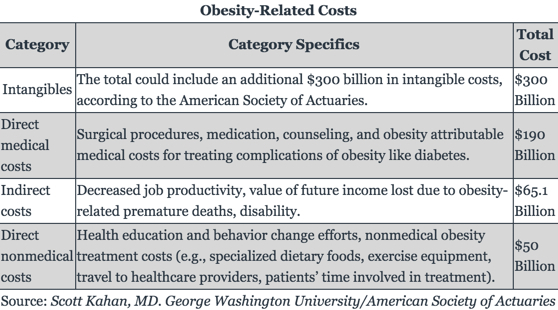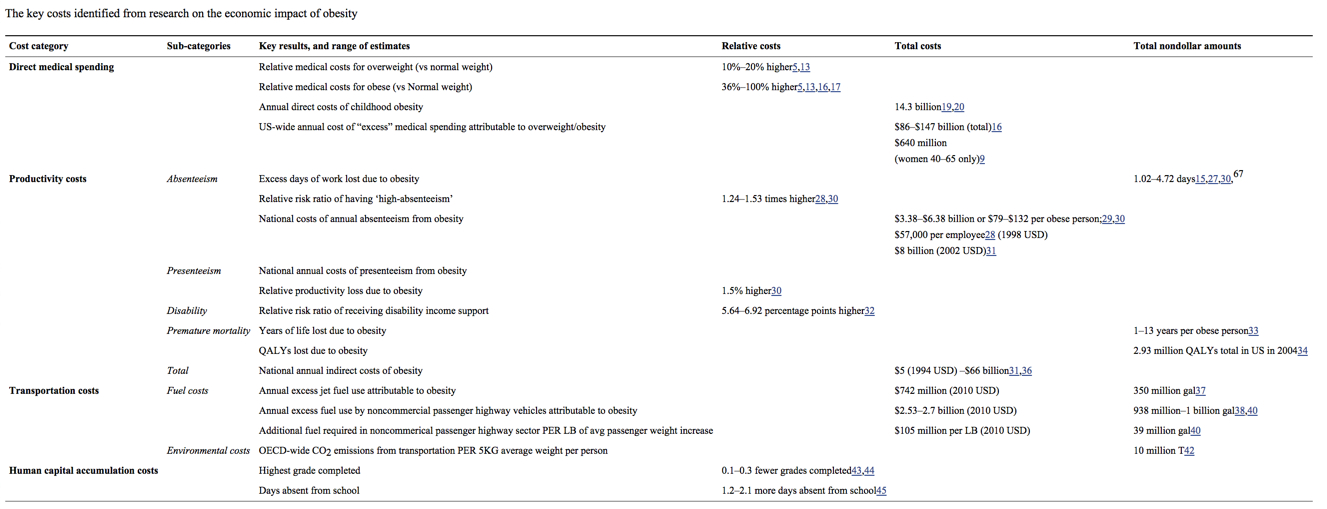Financial cost of obesity – USA
Analysis [6] prepared for The Fiscal Times by Scott Kahan—director of the National Center for Weight & Wellness at George Washington University—puts the total national cost of obesity (including direct medical and non-medical services, decreased worker productivity, disability and premature death) at $305.1bn annually. Including the intangible costs associated with pain and suffering from obesity and obesity-associated conditions would add at least a further $300bn a year (Society of Actuaries).
- Direct medical costs (including counselling, outpatient and hospital visits, a range of bariatric surgical procedures, new treatment, nursing home care, rehabilitation and hospice) account for $190 billion of the annual costs. [5]
- Non-medical costs (including health education and behavioural change) add $50 billion per year.
- Absenteeism and sub-par productivity in the workplace costs an additional $65.1 billion a year.

Earlier Analysis of the Economic Impact of Obesity on the US
- In 2010, the nonpartisan Congressional Budget Office reported that nearly 20 percent of the increase in U.S. health care spending (from 1987-2007) was caused by obesity.
- Annual health costs related to obesity in the U.S. is nearly $200 billion, and nearly 21 percent of medical costs in the U.S. can be attributed to obesity.
- Researchers estimate that if obesity trends continue, obesity related medical costs, alone, could rise by $43 to $66 billion each year in the United States by 2030.
- Per capita medical spending is $2,741 higher for people with obesity than for normal weight individuals.

View full size >>
Obesity's Impact on the US Workforce
- Full-time workers in the U.S. who are overweight or obese and have other chronic health conditions miss an estimated 450 million additional days of work each year compared with healthy workers-- resulting in an estimated cost of more than $153 billion in lost productivity annually, according to a 2011 Gallup Poll.
- Medical expenses for obese employees are 42% than for a person with a healthy weight, according to the Centers for Disease Control.